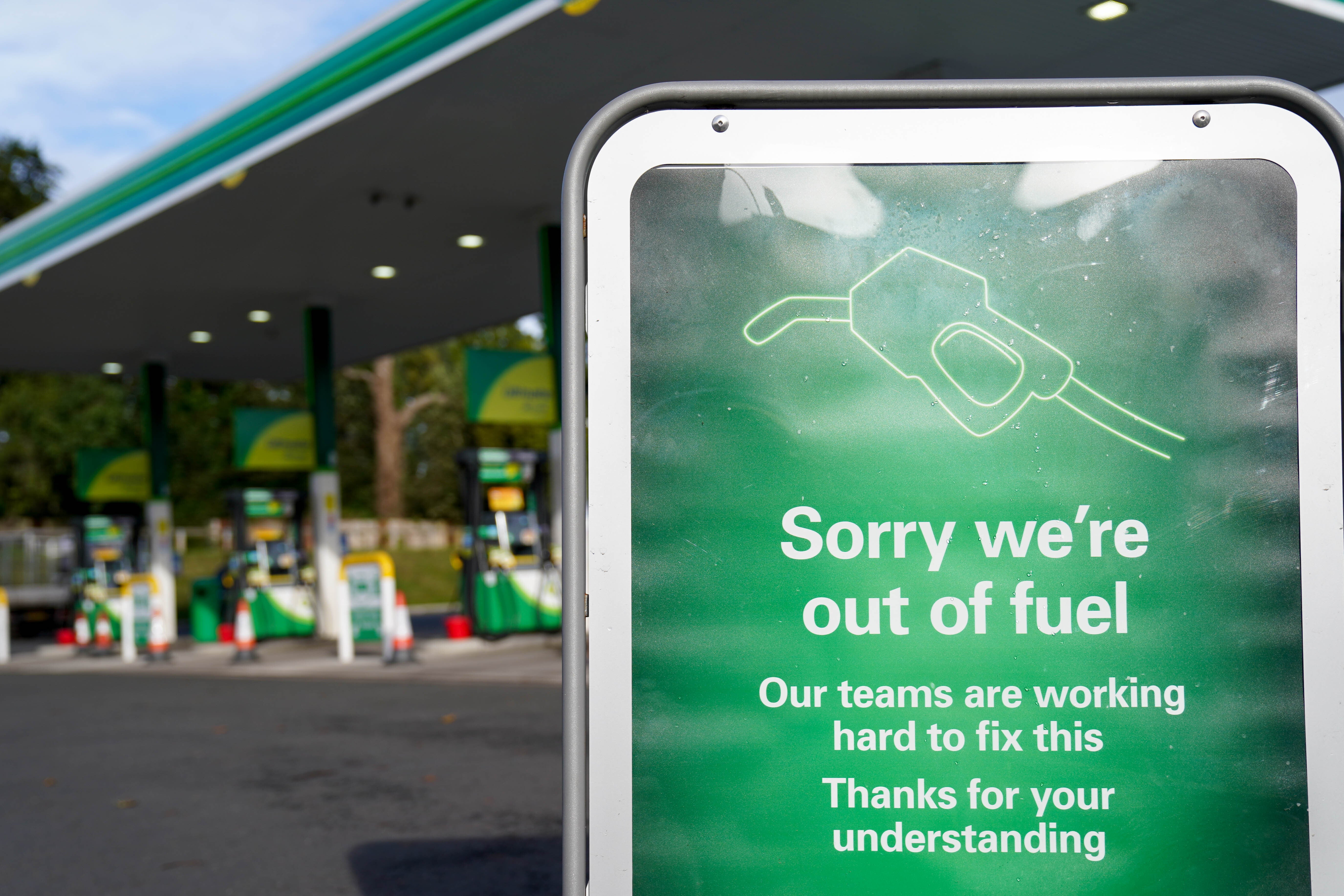How would petrol stations be prioritised for key workers?
Labour warns people could ‘die’ if key workers do not receive priority

Your support helps us to tell the story
From reproductive rights to climate change to Big Tech, The Independent is on the ground when the story is developing. Whether it's investigating the financials of Elon Musk's pro-Trump PAC or producing our latest documentary, 'The A Word', which shines a light on the American women fighting for reproductive rights, we know how important it is to parse out the facts from the messaging.
At such a critical moment in US history, we need reporters on the ground. Your donation allows us to keep sending journalists to speak to both sides of the story.
The Independent is trusted by Americans across the entire political spectrum. And unlike many other quality news outlets, we choose not to lock Americans out of our reporting and analysis with paywalls. We believe quality journalism should be available to everyone, paid for by those who can afford it.
Your support makes all the difference.Politicians, medical leaders and union bosses have urged the government to give key workers priority access to fuel, after 90 per cent of petrol stations in some areas ran dry.
This comes amid warnings that fuel shortages could have severe consequences on the health sector, if healthcare workers are unable to drive to work.
Addressing this concern on Monday, Dr Chaand Nagpaul, the council chair at the British Medical Association, said: “Healthcare and essential workers must therefore be given priority access to fuel so they can continue their crucial work and guarantee care to patients.”
Elsewhere, shadow health secretary Jonathan Ashworth warned that “some people could end up losing their lives” unless decisive action was taken by ministers.
Christina McAnea, the head of Unison, one of the UK’s largest trade unions, said teachers and police officers should also receive priority.
Although the government has not indicated whether it will heed such warnings, it could do so by implementing part of its national emergency plan for fuel.
The guidance, which was first issued in 2011 and last updated in 2020, offers 10 response strategies in the event of a petrol shortage, including the “designated filling station scheme”.
Under this particular plan, “emergency and critical service vehicles” can be granted priority at certain petrol stations, as they were during the 2000 petrol crisis.
Citing the help the Blair government gave to key workers 21 years ago, Sadiq Khan, the mayor of London, said on Monday: “The government must urgently look at taking the necessary steps, putting such measures in place, so that those key workers who have to drive to work can do so.”
Mike Granatt, a former senior civil servant who worked on the response to the 2000 fuel crisis, told BBC Radio 4’s Today programme on Tuesday that one of the difficulties of such a scheme was knowing who to prioritise.
“When we started prioritising people, we ended up prioritising about a third of the economy. And it didn’t even work then,” he said.
Mr Granatt said the government at the time failed to foresee the consequences of not including teachers in the scheme. As a result, schools were forced to close and hospitals were affected, since large numbers of health care workers, who were covered by the initiative, had to stay at home to look after their children.
Meanwhile, Brian Madderson, chair of the Petrol Retailers Association (PRA), agreed it is “very complex” to decide who is an emergency worker and which credentials they would need to show to be gain special access to the pumps.
“This is a last-resort situation and hopefully we’re not there yet,” he told the broadcaster.
The fuel crisis was sparked by a lack of HGV drivers, which means petrol cannot be delivered in the required volumes to forecourts around the UK.
Transport secretary Grant Shapps admitted on Tuesday that Brexit was “no doubt” a factor in this problem, but insisted that the cancellation of 30,000 HGV tests during the pandemic was the main cause.
Thousands of foreign-born hauliers are thought to have left the UK as a result of the 2016 vote.
Additional reporting by PA
Join our commenting forum
Join thought-provoking conversations, follow other Independent readers and see their replies
Comments